The Secrets of ‘The Other Two’: The Show Everyone You Know (With Taste) Keeps Saying Is So Funny
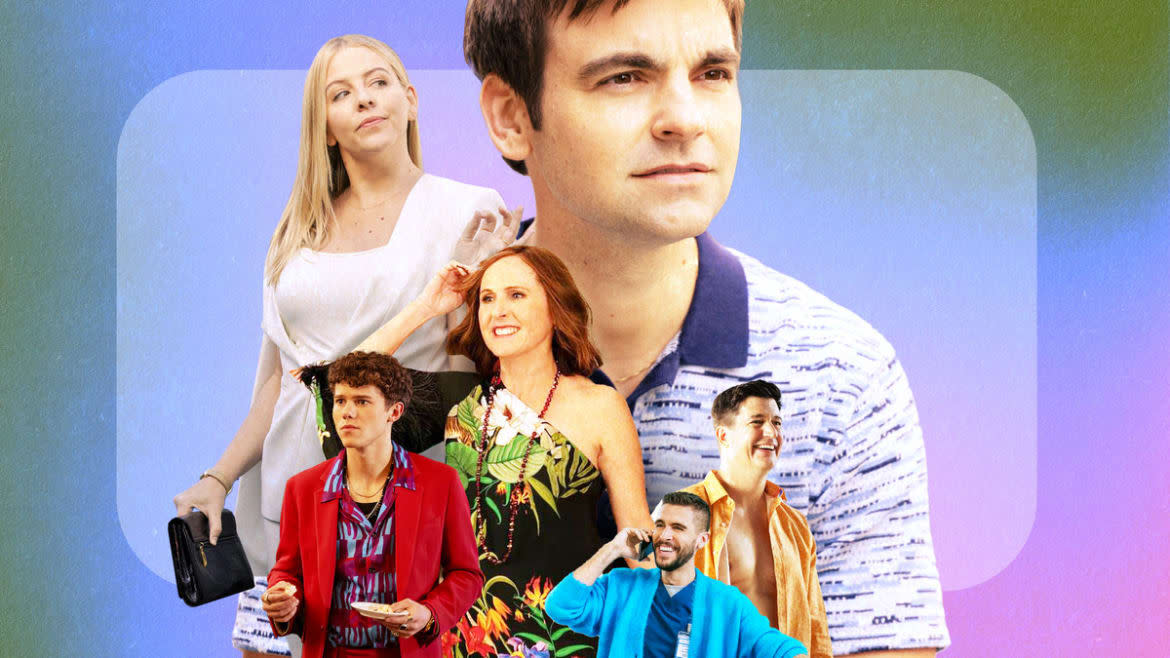
- Oops!Something went wrong.Please try again later.
- Oops!Something went wrong.Please try again later.
Imagine, in the age of dark, dramatic comedies like Barry and The Bear scooping up trophy cases of awards, that there’s a comedy on TV that is funny. Very funny. One with a laughs-per-minute ratio of sniper-sharp dialogue and mortifying physical comedy that tests the limit of just how many moments in an episode could deserve to be memed.
That series is The Other Two, whose third season is now airing on HBO Max. It’s about two thirtysomething siblings, Cary (Drew Tarver) and Brooke (Heléne Yorke), who embody the all-too-relatable contradiction of not only desperately working to be successful, but also feeling entitled to that success. Their journey toward fame is an exercise in admirable striving and its ensuing, incessant mortification—especially when they’re forced to reckon with the fame that their younger brother (Case Walker’s Chase) and mother (Molly Shannon’s Pat) achieve, seemingly without even trying.
Since it premiered on Comedy Central in 2019, before moving to HBO Max for Season 2, The Other Two has been hailed as a cult-favorite comedy, offering a rare combination of shrewd commentary and laugh-out-loud jokes. It’s a biting showbiz satire and a comedic anvil that flattens the media into a humiliated puddle. It’s unapologetically blunt—and often ruthless—in its depiction of the pressures that the gay community puts on each other. And there are profound points about the dissonance between what we think might make us happy and the emptiness we feel when we reach that goal.
This is all to say that The Other Two has had its fans since Season 1. But this season, their love for the show seems perceptibly rabid. I put out a call out on social media for viewers to tell me over Direct Message what it is about Season 3 that has elevated the show to a new level of excellence.
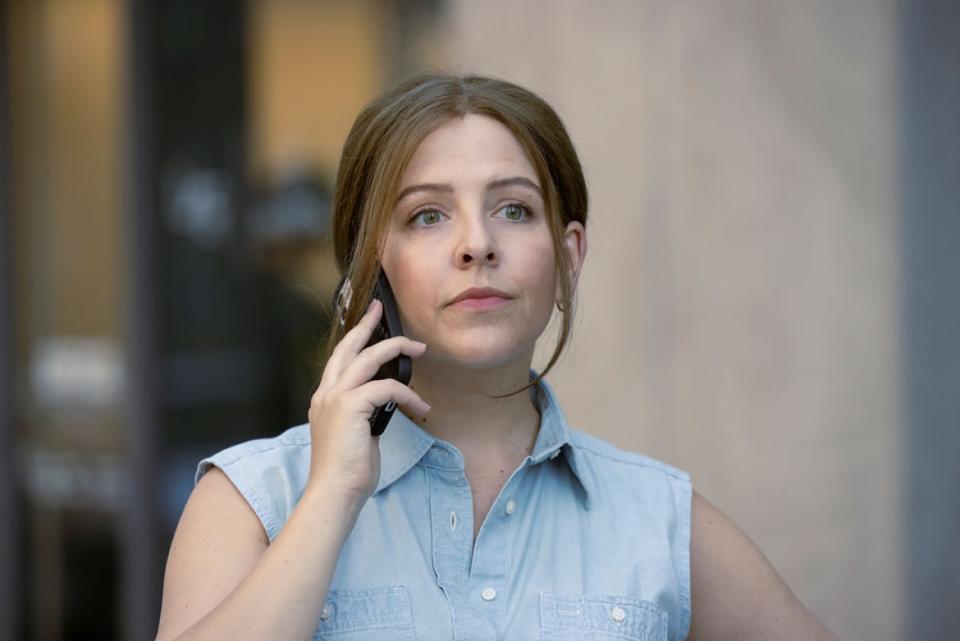
Many hailed the accuracy of its absurdity; its subtle realism in presenting the gay relationships, while still being funny in doing so; how it rivals 30 Rock in its frequency of jokes; how the savagery is tempered by the family’s sweetness; how it’s as traumatizing as it is deeply silly; and how relatable the characters’ respective shittiness is.
One fan said, “It’s so biting, but never feels like it’s punching down.” One praised how The Other Two shows “the Faustian deal that is becoming famous, both reluctantly or at any cost.” Another simply replied: “Molly Shannon.” Fair.
Another reply came from an actor, who said that a scene in a recent episode—in which Cary is auditioning for a sitcom character that had been changed from a woman to a gay man with no rewrites (“It still works!”)—actually happened to him, when he was reading for a CW pilot. And another response read, “My bestie happens to be single at present and she is seeking for someone nice and sweet, and mostly matured. If you are a gentleman over the age of 30, I think you two might be matched.” OK, I understand that one might be a bot.
The show’s third and fourth episodes, the latter of which premiered Thursday, are especially uproarious. In Episode 3, Brooke reckons with her decision to leave the industry, while attending a party at Ellen DeGeneres’ house, which she won’t be at “so people can enjoy it.” Cary has that aforementioned bizarre audition.
‘The Other Two’ Star Josh Segarra Is the Reigning King of Hot Idiots
In Episode 4, there’s a spoof of Plesantville, of all movies, that is used to comment on how insufferable and pretentious actors can be on sets. The Pleasantville scenes are both thrilling new ground for the show—there are so many special effects!—and yet familiar: a peculiar distillation of a flaw in the entertainment industry that we all recognize but would never think to illustrate in such a way.
With The Other Two seemingly having a moment, we talked to the show’s creators, Chris Kelly and Sarah Schneider, to break down the season so far and why it’s been particularly resonant.
After watching the premiere, I was wondering: Was there something about filming in COVID that you guys needed to get off your chests?
Schneider: No, this is a fictional show. I don't know what you're speaking towards. [Laughs]
Was it cathartic to pick those specific parts of COVID-era production to talk about? The scene where Cary and Beanie Feldstein try to have lunch together and are screamed at by the COVID monitor seemed particularly drawn from real experience.
Kelly: Yeah, [we were] shooting a full comedy show, trying to be a laugh riot, and then, at lunch, all eating silently on the floor and in little closets, in medical garb—and then having to do comedy. It was wild.
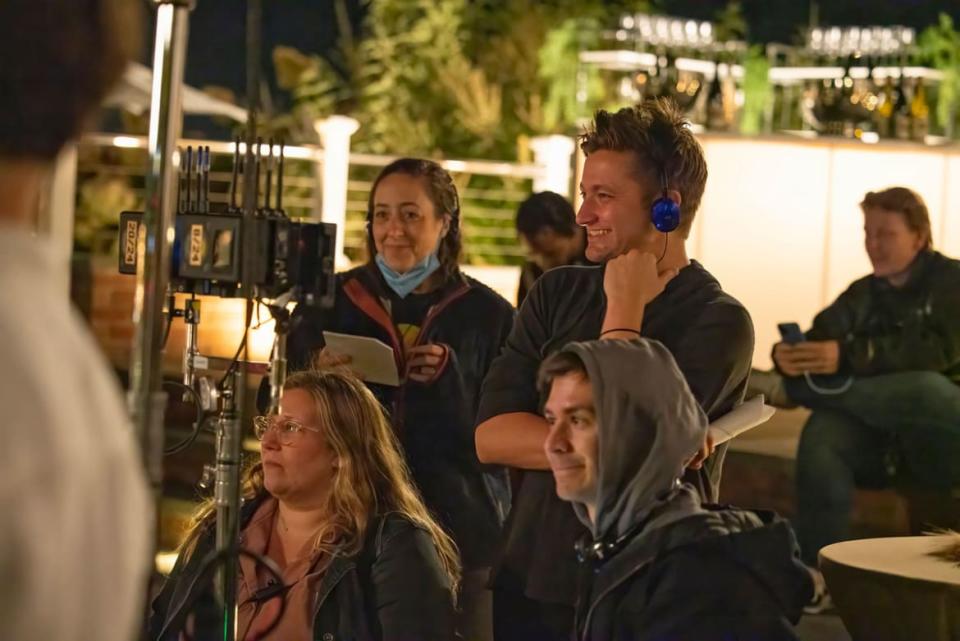
Brooke’s line about nurses floored me: “We banged pots for like two weeks…It’s 2023. Enough with the nurses!” Then we find out Lance is a nurse. What inspired those jokes?
Schneider: At the end of the last season, we made the joke about Cary's movie being set to start shooting on the day that everything shut down in March 2020. So we’d sort of written ourselves to have to address the pandemic, but we didn't want to live in the pandemic. We were like, let's just see how that would impact our characters.
Cary’s [pandemic connection] is obvious. Then we were talking about Brooke and thought it was the perfect foil for her perfect boyfriend to have now pivoted his whole life to service, and how that would impact her, and how she feels about her job—if she's doing enough, and if what she's doing is meaningful, the way that what he's doing is meaningful.
Kelly: We wanted the pandemic to absolutely not be a part of the show, but to be the very quietest springboard for both of their stories. So for [Cary’s experience with] shooting Night Nurse to not exactly be what he thought it would be is sort of indicative of his whole experience this season. “Is acting what I thought it would be? Is getting what I want what I thought it would be?”
And then for Brooke, this change in Lance has made her reassess, “Was I supposed to have changed? Was I supposed to have had an awakening? Am I bad that I don't want to change my life and find something meaningful? Wasn’t this my version of ‘meaningful?’”
Case Walker and His Sexy Armpit Grow Up on ‘The Other Two’
I’m projecting a bit here, but I remember that, during the pandemic, it felt silly to be the person writing about Real Housewives, while there are people doing meaningful, life-saving things—so I understand why Brooke’s wondering what would happen, if she left the industry. Is that self-doubt something you both were working through with this storyline?
Kelly: Yeah. I mean, none of us on this Zoom became a nurse, did we?
Schneider: I think we all sort of felt tinges of that during the pandemic, so we thought Brooke was the perfect character to explore that for us.
Kelly: We also wanted it to, hopefully, not be black-and-white. It's not like Lance is right, because he became a nurse—“Lance is good, because nurses are good, and what Brooke does is bad.” We just wanted it to fuck with her head a little bit.
Schneider: We thought we should raise that question in Season 3 of our comedy show: What makes a life meaningful? [Bursts out laughing]
Kelly: I wanted that for the poster. I wanted, “What makes a life meaningful?” But they said no. [Laughs]
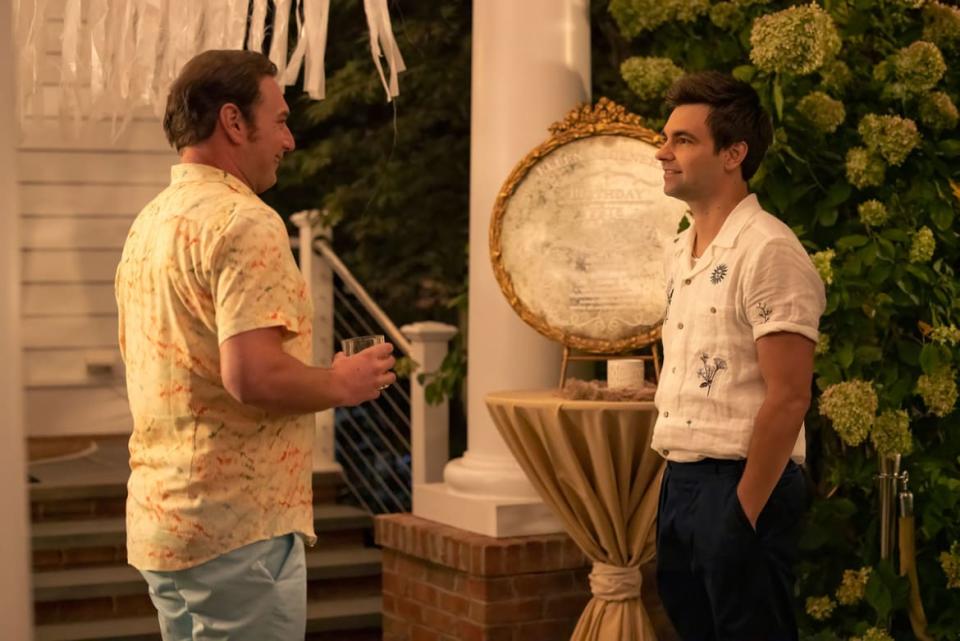
There’s a big storyline in these early episodes about Chase turning 18 and the craven sexualization of him that immediately happens afterward. Was that a fun thing to explore?
Kelly: That's another reason why we time-jumped three years. We were like, we simply must make Chase an adult. [Case Walker] is 20 in real life now, so there’s no more 14-year-old-pretending we could do. It gave us a different wheelhouse to play in and different types of jokes to make.
Were there specific celebrity coming-of-age stories about being sexualized that you were referencing? The armpit storyline seems so specific.
Kelly: We were talking in the writers room about armpit photos. That was such a thing on magazine covers. I remember Justin Timberlake had one. We were looking for the dumbest possible way to sexualize him. We like zooming in on something left-of-center, and so we thought it was funny that it was an armpit photo, and then we combined it with Brooke having to do something stupid and meaningless for her job.
We were looking to sexualize his character and talk about the industry sexualizing him without actually feeling like we were doing that, so we liked the idea of picking a dumb joke. We never actually show his pit!
Schneider: Our original idea for him turning 18 was that he had to turn 18 in a bunker 30 miles under the ground, because otherwise, he’d be ripped to pieces by teen girls. I remember the countdown clocks to the Olsens turning 18. Just the grossness of that.
‘The Other Two’ Returns to Brutally (and Hilariously) Satirize Hollywood
The show does seem a lot hornier this season. I’ve seen more of Drew Tarver’s body in the first four episodes than in the previous seasons combined, and there’s a very hot sex scene with Brooke and Lance. Was that intentional?
Schneider: Cary had been not embracing his sexuality as much in the last few seasons, and now he’s more comfortable with himself. Brooke and Lance had been broken up, so this is actually the first time where they're both comfortable with their sexualities and with their people. It’s not intentional, [it’s just that] the story took us there.
Let’s talk the Pleasantville parody. How did the idea come about to use that movie as a metaphor for Cary’s unfulfilling experience as an actor, on the set of a fictional show called Emily Overruled?
Schneider: We were excited by [doing] something totally different, like a challenge, something more ambitious. We've never worked on a giant set like that before. We've never done VFX like that before. So it was exciting to have a challenge like that. Although, when we were writing it, we were like, “This will be fun.” And then we were making it and were like, “What have we done?”
Kelly: Our production did such an incredible job. Even when we were watching the edit, Dana Delaney [who plays the star of Emily Overruled] and all the actors that are in the Emily Overruled world are so good. It was so tricky to cast people who were playing it straight and felt like they were on a procedural, but who also had that like kind of pleasant lilt to them. They talk a little off but don't feel jokey. Our casting directors found such amazing actors. It's fun to watch, just because it feels like every department really made it work so well.
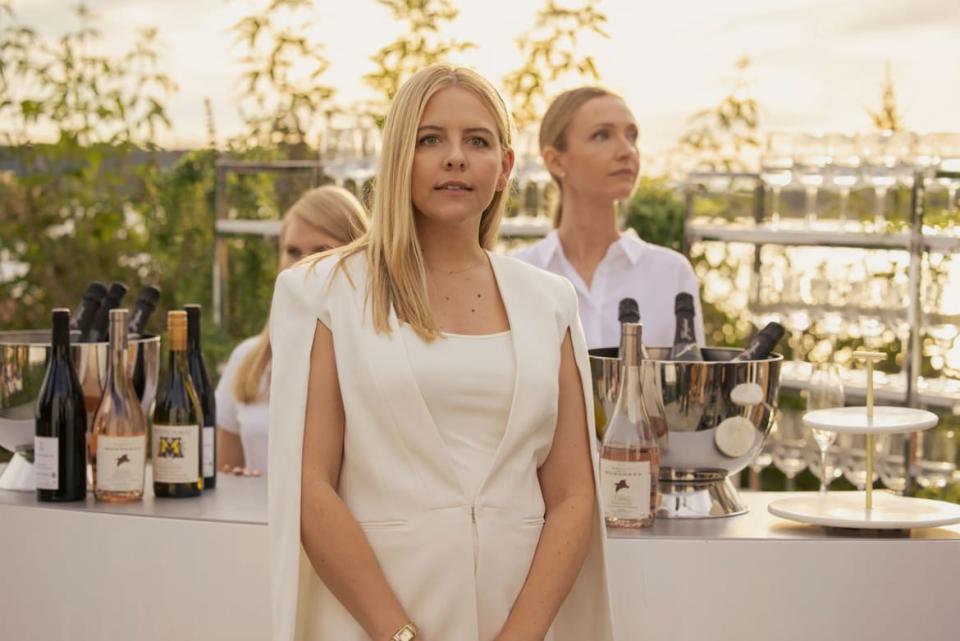
Why Pleasantville?
Kelly: It came about the way most of our ideas come about, which is, we know the general story of the season. We know the general drama of the season. And then, episodically, we know what we want each character’s want or struggle or goal to be. So we really wanted Cary to feel like, “OK, I got my first big job after Night Nurse. This is the one, baby! Night Nurse sucked. Night Nurse was weird. Now, here we go. It’s a reset.” But we wanted him to be frustrated again and feel like, “Why isn't acting everything in the world to me? Why isn’t this experience transcendent?”
We were coming up with fun, dumb, stupid ways to tell that story and stumbled on Pleasantville— this idea of this nine-to-five, staid courtroom drama, where everything is just, “Hit your mark, baby!” He doesn't want to hit his mark. He wants to be an actor in something like Blue Valentine, where the cast lives in a house together for a year, and they celebrate Christmas together, and they're always in character, and the camera just follows them down the road, and there's no permits, and they're just raw.
Right. He wants the Indie Spirit Award-nominated experience.
Kelly: He’s like, “I’m sorry, I thought that's what every moment of acting was going to be. You're telling me I’m supposed to stand here on this mark, say my line, and go home? That's nothing.” We liked that juxtaposition of what he imagined life as an artist would be like, and then what it is.
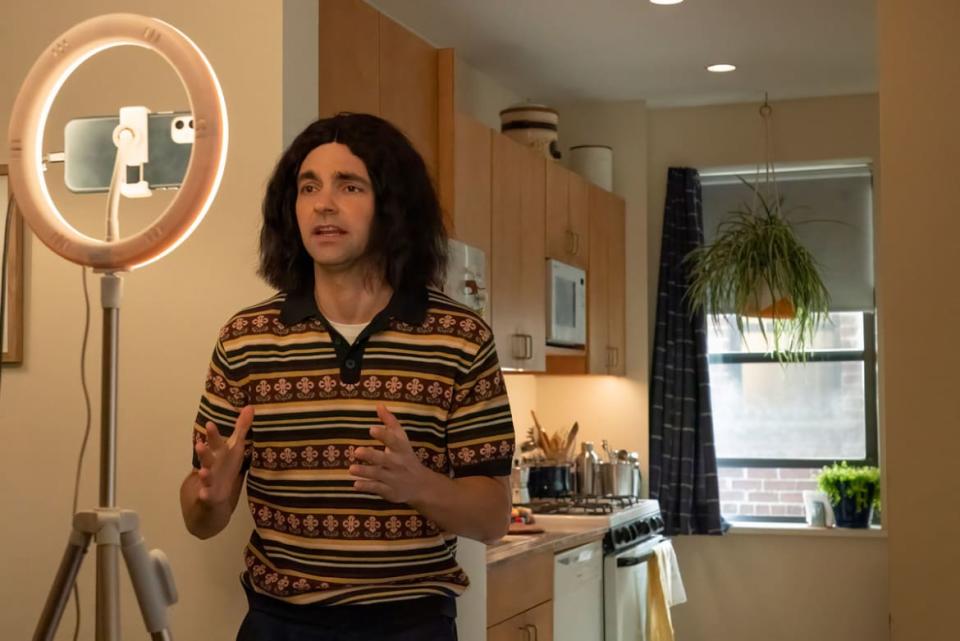
How did Dana Delany end up being the choice to play the Joan Allen-type character from Pleasantville?
Schneider: Oh my gosh, she was perfect. We asked our casting directors, “Who do you think would be game for this truly bonkers thing?” The first thing we shot was the speakeasy scene [where her character orgasms in a crowded bar]. So it was like, “Hello, nice to meet you. Can you please orgasm over the idea of being able to direct?” It’s very bonkers. They pitched it to her, and she was down. We're big fans of hers.
Keep obsessing! Sign up for the Daily Beast’s Obsessed newsletter and follow us on Facebook, Twitter, Instagram and TikTok.
Get the Daily Beast's biggest scoops and scandals delivered right to your inbox. Sign up now.
Stay informed and gain unlimited access to the Daily Beast's unmatched reporting. Subscribe now.

